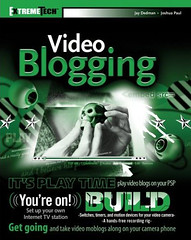Movies from books
Movies from books
The adaptation of novels to movies is seen as the original source for scripts, even the first printed text, The Bible, having even been converted to film countless times. The great number of novels that exist is reason enough for books to provide the outline for many movies, but is it always a success to take the written word and transform it into scenes and pictures?
Novels, texts and books that provide the plot for movies come from works of fiction to autobiographies to plays to non-fiction historical accounts to comic books with the creative licence of the director and screenwriter ranging from staying true to the book to simply being a guideline.
A popular complaint of this process is that “The book is far better than the movie” with a level of controversy linked to the process of a movies interpretation of a novel. There are many
examples of this, including the renown “A Clockwork Orange” written by Anthony Burgess and recreated to the screen by Stanley Kubrick. The cause numerous discussions and debates, the movie and Kubrick’s interpretation was supported by Burgess, which was based on the American transalation of the novel. Of course there was an obvious plot difference from Burgess’ novel to film, which removed Burgess’s British version of the text which created a far bleaker conclusion without Burgess’ original reform plot twist, in textbook Kubrick style.
This example, one of hundreds, this question of books and movies and how they can represent one another is often a source of discussion with many people believing that each medium has its own style
and benefits.
Firstly, time is an obvious element to consider with movies only demanding a few hours while books can be a real investment|the question of time and the investment of the reader or audience is a factor. Movies are a relatively small commitment, being around two hours while books can take days or weeks to read. Clearly, movies have the perfect setup for immediate entertainment if the individual is looking to fill a few hours. However, to convert books to film there will customarily be modifications to the original storyto make the story and narrative appropriate for the film constraints. For example, the trilogy of movies of “The Lord of the Rings” had an overall screen time of over 10 hours, major plotlines were cut from highly acclaimed novels by J.R.R. Tolkien that were thought needless for the movies forward momentum of the story.So then does this
beg the question of whether a movie adaptation is the novel itself, or merely the screenwriters or directors own interpretation of the story?
Additionally, while books have the reader use their imagination to visualise the characters and world to their own choice and explains the innermost thoughts of characters, movies see these mental images realised, regardless of whether this was how the reader created them. While this may prove helpful for many people, there are always cases where audiences have completely disagreed with the casting of certain characters, which can ruin the transition from a readers mind to the silver screen.
Certainly, the question of cutting text and storylines from books is not always the case as with many graphic novels, comic books and children’s books actually being extended and added to to suit the movies constraints. In
fact, one of the most highly anticipated movies for 2009 is based on a 48-page children’s book called “Where the Wild Things Are” that has sold over 19 million copies worldwide according to HarperCollins.
The consideration of the qualities of movies and their literary sources is a discussion that won’t age with new movies being filmed every year. In truth, the sheer number of movies created with a sourced from a novel or book is increasing as computer graphics and special effects are being upgraded, which means books that previously contain imagery beyond reality are now able to be created.
So the question of whether books to movies conversions are successful or not is really subjective for the audience. Both methods are effectively audience based, meaning that it is more a matter of whether the individual finds a particular film or novel matching, as
opposed to classifying the entire process a success or not.
Jamie Uther researches different niches of general finance and investment, and is a writer online for Credit Cards.
Article from articlesbase.com
Find More Movie Making Books Articles

